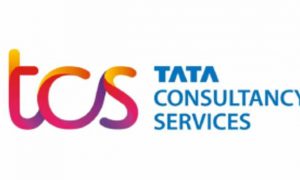What not to do in interviews
Hunting for a new job can be stressful, and once you’ve managed to secure an interview or two the nerves really start to kick in. But click or scroll these top tips of interview mistakes to avoid to give yourself the best possible chance of landing that next job.
Not looking the part
Find out what people wear in that work environment in advance if possible. Do dress smartly and be sure that your clothes are clean and ironed. Make sure that you maintain good personal hygiene. Hair should be washed, nails should be clean and trimmed and take measures to ensure you don’t have any body odor.
Arriving late
Don’t be late. It seems the most obvious interview tip, but many people struggle with punctuality. Plan your route well in advance, and assume you may be delayed so that you give yourself plenty of time to arrive to your interview about 10 minutes early. This will show that you are keen and emphasize your ability to be punctual.
Smoking before you go in
Don’t smoke before going into your interview. Even if your interviewer smokes too, chances are they don’t want to smell the remnants of your last cigarette lingering in the room for the duration of your interview
Not reviewing your key points
Do remember to go over your résumé and achievements prior to the interview. When the interviewer asks you questions about your career or qualifications and how you can apply them to the prospective role, you should be able to answer them straight away without referring to your résumé or notes.
Having your phone on
Remember to switch your phone off. Even if it’s on silent, you may have an alarm you forgot about go off in the middle of the interview, which will definitely come across as unprofessional.
Using slang
Don’t use slang or curse words when speaking with the employer. Even if you feel it is a very casual situation, or you are a bit nervous, it’s always best to come off as being polite.
Not speaking professionally
Do speak eloquently and think about how what you’re saying will come across to the hiring managers. Think in advance about what makes you the best person for the role and be confident. Avoiding colloquialisms and fillers such as “um” and “like” will definitely give the hiring manager a better impression of you.
Poor body language
Don’t slouch in your seat or make other gestures that may suggest disinterest in either being at the interview or what the interviewer is talking about.
Bringing up personal matters
Don’t discuss your views on controversial topics or personal issues you may be experiencing. This is not the time for them.
Going off topic
Listen carefully to their questions and try to stay on topic and keep answers concise and relevant. You will miss out on making your point if you ramble on about things irrelevant to the questions you’re being asked.
Being a gossip
Don’t talk about past employers or colleagues in a negative or gossipy way. It’s likely to set alarm bells ringing with your prospective employer.
Not discussing your skills
Do share, in a clear and objective manner, what you learned from challenging situations at your previous job and how these acquired skills can be used in this role.
Not making eye contact
Don’t forget to make eye contact and smile. Your interviewer(s) will be trying to work out if you will fit in and get on with others.
Not being confident
As well as maintaining eye contact, smiling during the interview will not only show that you are friendly but you will also appear to be relaxed even if the opposite is true.
Not taking time to reply
Don’t draw blanks or answer questions with a simple ‘yes’ or ‘no’. Take your time to give a proper reply.
Not providing specific examples
Don’t use vague and meaningless phrases such as “I’m a good team player” and “I’m a people person”. Instead provide specific examples of how you’ve worked as part of a team or have developed people you’ve managed in the past.
Not asking the right questions
Do understand that asking intelligent questions about the company and the role shows that you’re interested in the job and the company and that you have done the appropriate research.
Not putting in the effort
Don’t hand over a patchy résumé or samples of your work that look like they’ve been mauled by a dog. Print them in color on good-quality paper and present them in a folder. Good luck!




































